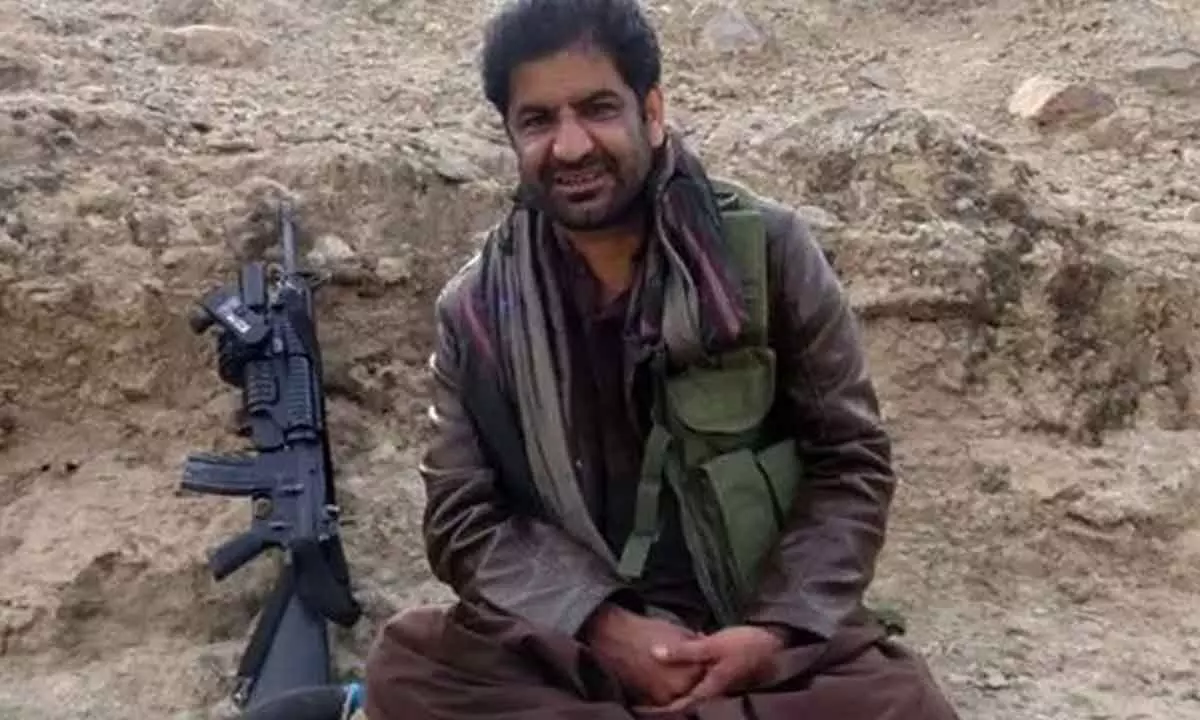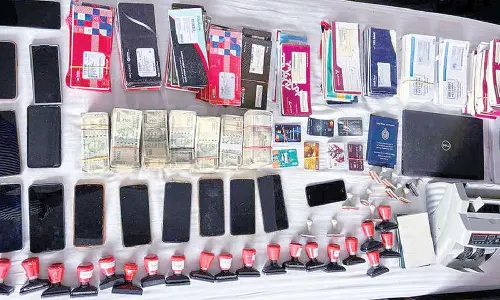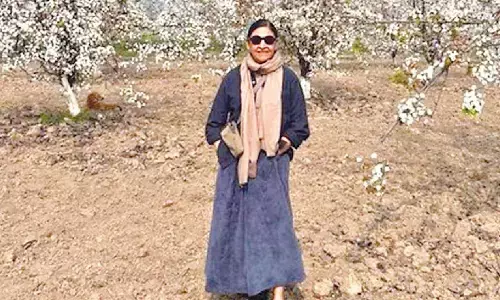ISI admits what everyone else knew since last year

Arrest of Baloch National Army founder Gulzar Imam
New Delhi: Pakistani spy agency ISI has finally revealed after months of speculation what was known all along - that Gulzar Imam, founder of the Baloch National Army (BNA), is under Pakistan's arrest. However, it hid the information that people wanted confirmation about - how and where was Imam arrested and with whose operational support. BNA is fighting for the separation of Balochistan. The group was formed on January 11, 2022, out of a merger of the Baloch Republican Army (BRA), and the United Baloch Army (UBA). BRA and UBA also announced their dissolution following the establishment of Baloch Nationalist Army. Its formation marked the coming together of the Marris and the Bugtis, two of Balochistan's largest tribes that historically have not always seen eye to eye.
On April 7, the Pakistan spy agency's public relations wing, the Inter-Services Public Relations (ISPR), published a media statement on its website: "In a high profile and a successful Intelligence Operation, Lead Intelligence Agency successfully apprehended a High Value Target (HVT) Gulzar Imam alias Shambay. He has been a hardcore militant as well as founder and leader of the banned outfit Baloch National Army (BNA) which came into being after amalgamation of Baloch Republican Army (BRA) and United Baloch Army (UBA). BNA had been responsible for dozens of violent terrorist attacks in Pakistan including attacks on Law Enforcement Agencies (LEAs) Installations in Panjgur and Noshki."
That Imam was in Pakistani custody was known since September 2022. It was widely known among Baloch circles and Pakistani journalists that Imam had been trapped and arrested with help from a friendly Muslim country in Europe. What was not known was how and where he was arrested. In September 2022, even Imam's organisation BNA, had refused to comment on his capture. The other Baloch organisations also kept quiet, fuelling rumours. The BNA finally revealed in November that chief Gulzar Imam was in the custody of Pakistani intelligence agencies. It still did not mention when, where or how was Imam arrested. The BNA also said that it is conducting investigations and it will find out the culprits involved in Imam's capture.
Various Baloch sources, including ones in Europe, had told India Narrative that internally it was known that Imam had been arrested possibly around May 2022 but the entire action around his arrest had been kept a top secret. Other sources had said that he was arrested around August-September 2022. Speculation said that Imam was lured to Afghanistan where he was captured by spy agencies in the Pakistani embassy. His travel documents were prepared and he was asked to travel to Turkey, where he was arrested and transferred to Pakistan.
Another report had claimed that he was arrested in Turkey after he arrived there from Iran after having crossed the Pakistan-Iran border. Yet another rumour said that he had been detained in the Balkan region in a collaborative operation between Pakistani spy agencies and a friendly Muslim nation. The ISPR in its statement said that Imam was a deputy to Brahamdagh Bugti in the Baloch Republican Army (BRA) and was "also instrumental in formation of Baloch Raji Aajoi Sangar (BRAS) and remained its Operational Head". The spy agency has said that Imam has visited Afghanistan and India and those links are being investigated.
The ISPR statement does hint at the complexity of the operation through which Imam was captured. "He was apprehended after an innovatively conceived, carefully planned and meticulously executed operation, spanned over months over various geographical locations," says the spy agency.
The Baloch have been running an ethnic insurgency against Pakistan, seeking independence on historical and economic grounds. The community says that it was an independent nation which was forcefully taken over by the Pakistani army in March 1948, soon after India's independence.










